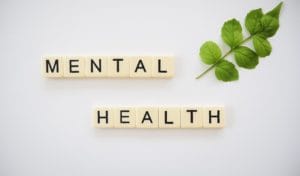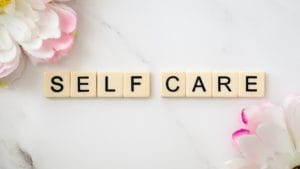How to look after your mental health?
Disclaimer: this article is mainly for information purposes. In case of any critical situation or mental health problem, it is highly advised to seek medical and professional treatment. In regard to psychological issues never delay in seeking professional advice or treatment just because you have read something on this website

Sarah was always worried about doing well at the High school but she was unsure of the thoughts that swarm around her head. Sometimes she would stay up at night and days too and gradually begin to feel lost in space.
This condition led her to perform poorly in her tests. One day when she reached home Sarah broke down into tears before her mother. She comforted her daughter and told her that, “Like Physical health, we all have mental health too.”
She went on to tell Sarah that “we all experience positive and negative emotions from time to time which are governed by what’s happening around us.”
Sarah’s mother also advised her to take a break from everything and do something that she enjoys.
Do you remember the last time you felt sad, anxious, or scared that threw you off balance?
Well, you are not alone.
What is Mental health?

You all have experienced bouts when you feel stressed, anxious, sad, worried, afraid, or angry these are all normal emotions. But if these emotions become severe so much that they begin to affect your ability to function daily routine tasks.
More often than not these feelings become progressively persistent to the point that they can lead to developing into a mental health problem.
Read, ADHD is the reason for your inability to concentrate
There are some indicators that are the red flags of the mental health symptoms that signal you need a mental health assistant.
1. Sadness or depression that lasts for more than 2 weeks
You may suffer feelings of sadness or depression at one point or another but most of the time you start to feel better after a while.
However, The American Psychiatric Association divulged that abnormally intense sadness persists for more than two weeks which is evidence of depression.
2. Extreme mood swings
If you notice about yourself that your moods are changing super quickly and you don’t even know why then this is the sign you should see a mental health counselor. The National Center of Biotechnology information and CVI discovered that people’s emotions change daily and it’s not something unusual.
The National Alliance for the mentally ill, NAMI warned that extreme mood swings, causing extreme changes in your energy and behavior are an indication of bipolar disorder.
3. It all gets out of control
The National Institute for mental health found that if someone’s worrying and can’t shut it off then it could mean they are suffering from an anxiety disorder. Other signs include having issues relaxing, insomnia, aches and pains, irritation, and racing thoughts.
Read, Karachi’s weather drops
The Anxiety and Depression Association of America indicates that if people feel a certain emotion for at least six months then it’s high time they visited a mental health professional.
4. Sleeping too little or too much
Have you recently noticed that your sleeping schedule has changed drastically and you’re sleeping too much or maybe too little? Chances are you’re dealing with insomnia or hypersomnia. It’s about time you need a professional advice.
5. Isolation and reducing social interaction
Another sign of these extreme emotions is limiting your interaction with the outside world. People tend to isolate themselves when suffering from a mental disorder. So are you making excuses to circumvent social interaction? This could be a sign of depression or a psychotic disorder.
6. Difficulty dealing with daily situations
Have you ever encountered a time when you felt that nothing seemed to go right and you just couldn’t handle it? According to the Australian Department of Health, a rough patch that you just can’t get past can be an indicator of anxiety or depression.
More, Katherine Heigl struggled with severe anxiety after being labelled as ‘difficult person’
7. Extreme anger outbursts
If you observe that a certain emotion is getting out of your control then this is a warning you must get your psychological health checked.
8. Self-harm or suicidal ideation
According to experts people who have severe mental illness tend to think about harming themselves and committing suicide. Reach out to a mental health professional to receive the help that you deserve.
9. Drugs indulgence
The use of drugs increases with the increase in symptoms of mental disorder. People often use drugs as a coping mechanism when they come in contact with a rough patch in their life or extreme mental pressure.
Also, Pakistani Fast Bowler Unable to Endure Mental Torture Anymore
Why should you get your mental health checked and why should you visit a mental health counselor?

Do you know that up to 1 in 4 people have experienced mental illness? Chances are that you are going through it now or might have gone through it.
The World Happiness Report found that “Over 1 billion adults suffer from anxiety and depression.”
Thanks to so much material available on mental health awareness people have become cognizant and this points to the fact that we’re prioritizing self-care, and that’s awesome.
If you look around, you may notice that we’re engaged in making huge strides in destigmatizing mental illness because it’s important to acknowledge that you need to seek mental health first aid.
These issues can vary and can contribute to affecting our lives in different ways imaginable. The significance of being aware of your mental health is equally important as treating it.
read more, Mohammad Aamir’s Resign Sparks So Much Response
As you take your physical health seriously and get yourself checked regularly because it is a pretty well-accepted principle. Seeking psychological aid is just like that.
But when it comes to our invisible enemy which is our mental health, we tend to take it less seriously and still want to ignore any related indications.
However, the mental condition is something that you can not take lightly.
Having any sort of condition can have a substantial effect on your day-to-day routine.
However, the idea is sinking in quite swiftly and It’s becoming less taboo to talk openly about therapy and mental illness. Almost all the celebrities are talking about their experience with anxiety and such types of mental disorders. They also talk about the importance of receiving professional guidance.
There are even several movies made on a similar subject in which characters portray some kind of mental condition. Joker – a psychological thriller film released in 2019 – is all about the damages that can be done due to severe conditions and owing to different types of mental health problems.
A mentally troubled protagonist, Arthur Fleck, in the movie has to battle an inner struggle where he comes face-to-face with his alter-ego: Joker.
The second impeachment trial for former President, Trump is Guilty
It’s important to take care of yourself and get the most from life. Practical ways to look after your mental health and making slight adjustments to your lifestyle can do wonders but that doesn’t need to cost a fortune or take up loads of time.
Some individuals may face mental health problems from mild to severe signs of anxiety disorder. However certain persons undergo extreme symptoms of these disorders. Others often deal with problems such as anxiety, bipolar disorder, or personality disorders that are less common but complicated.
There are different types of mental problems:
- Depression
- Anxiety disorders.
- Bipolar disorder.
- Obsessive-compulsive disorder (OCD).
- Psychosis.
- Personality disorders.
- Schizoaffective disorder.
- Borderline personality disorder (BPD)
- Post-traumatic stress disorder (PTSD).
- Dissociation and dissociative disorders.
- Schizophrenia.
- Stress – how to cope.
We, at Daynews.tv have also culled some of the most powerful yet least intimidating ways to look at several mental health issues so that you can comprehend the issues, easily detect and get timely treatment.
Justin Timberlake writes an apology to Britney Britney Spears and Janet Jackson
1. Eat Well to prevent stress

Eating a balanced diet isn’t just vital to your bodies, but it’s also crucial for your minds. Adding nutritious food is a good defense against stress. Minerals deficiencies, such as iron and vitamin B12 deficiencies, can mete out a low mood. Watch out for the amount of caffeine you take daily; it can make you feel anxious and jittery.
according to uofmhealth.org:
- Try to cut down on caffeine. Coffee, tea, some sodas, and chocolate contain caffeine. Limit the amount gradually but not suddenly stop using caffeine since it can lead to headaches.
- Don’t skip meals or eat on the run. This makes stress-related symptoms even worse. While eating on the run can lead to indigestion. Use mealtime to relax, devour the food on your plate.
- Avoid overeating. Some people’s guilty pleasure is eating food when they are watching TV or when they are distressed. If you are no stranger to them then try replacing it with a good bowl of wholesome salad or soup. As for relieving stress, try taking a walk, taking a bath playing with a pet.
- If you really want to get rid of mental stress then you might want to avoid highly refined foods such as foods with added sugar, pasta, chocolate, white bread, biscuits, and sweets.
2. Take care of your Body’s needs

Taking care of yourself physically can improve your mental health. Be sure to add nutrients to your daily meals, drink plenty of water, avoid smoking and vaping, Get enough sleep as Researchers believe that sleep deprivation can lead to a high rate of depression. Exercise helps diminish depression and improve moods.
Kim Kardashian and Kanye West decide to part ways
3. Avoid Negative Self Talk

What you think is vital and what you think of yourself is equally important.
Thinking Negative about yourself can drag you down. Sometimes you don’t realize the gravity of different types of negative thinking.
It is extremely significant to overcome negative thinking by replacing them with positive ones, repeating positive statements.
An example of negative self-talk would be: I always embarrass myself, nobody likes me.
Exercise teacher oblivious of Myanmar coup taking place behind her
4. Avoid smoking and drugs

Drinking and smoking are often associated with withdrawal symptoms and can affect your physical and mental health.
Excessive drinking for a long time can leave you with thiamine, important for brain function, and people develop a higher risk of having severe memory problems.
According to mentalhealth.org smoking and passive smoking, instead of relaxing people, maximizes anxiety and tension due to Nicotine. People falsely believe that smoking reduces stress but in actuality, it is the other way around.
Can wearing two masks help prevent coronavirus?
5. Get enough sleep

Sleep is central to your physical and mental health as it helps regulate the chemicals in the brain that transmit information. These chemicals are significant in controlling your moods and emotions. If you don’t get enough sleep, you’re likely to feel depressed or anxious.
6. Exercise

Doing exercise can have tremendous effects on both body and the brain as it helps in maintaining good mental health. It helps reduce time spent being sedentary and staves off an early death. Work out also improves the chemicals in your brain leading you to a good mood.
Ford Motor Company all Set To Compete With Tesla
Exercising eliminates anxiety, low mood, stress You don’t need to do a hardcore workout, join a gym, install equipment for that, a brief walk might do the trick.
The National Health Service a UK-based healthcare system gives a shortlist of 10-minute exercises that you can do at home without needing to bring equipment.
7. Meditate

Meditation is a simple practice that you should do every once in a while. It reduces stress, increases calmness, and promotes happiness. Meditation is an opportunity to connect with the universe, and yourself.
Our minds wander a lot, and most of the time we find ourselves dwelling on the past, thinking about the future, fantasizing, fretting, worrying, or daydreaming.
Who is World’s richest, Jeff Bezos or Elon Musk?
Meditation is about paying attention to the present moment. It works as a tool to reduce stress as we become calmer and kinder to ourselves and others.
Prayers and relaxation exercises can rejuvenate your state of mind and perception of life. Research discovers that meditation helps you feel calm.
8. Avoid sugar, add magnesium to your diet.

It won’t cure depression by cutting back on added sugar, but it will help keep blood sugar levels steady, which will help regulate your energy levels during the day.
Life amid coronavirus: same life, new story
While there is no such thing as stress-fighting foods, it is proven that magnesium helps reduce headaches and exhaustion, as Despina Hyde-Gandhi, M.S., a licensed dietitian at the Weight Loss Program of New York University Langone.
You can add dark leafy greens, avocados, pumpkin seeds, and figs to your diet.
9. Set goals

The first thing you can do is decide what you really desire to achieve, is your goal academic, professional and personal?
Pen down your goals, the steps you need to achieve your goals. Set your sights high but be sure to be realistic and don’t over-schedule.
In the end, you will be amused by the sense of self-worth and accomplishment as you continue to make progress toward your goal.
Goal-setting allows you to mitigate stress and depression and lets you visualize success. You allow yourself tighter control by laying out the blueprints for the future and thus eradicate mental health problems while the conquest.
10. Stress Management

Try to manage your responsibilities, you need to stop absconding from them and address them. You may face trouble sleeping owing to the fact that something is stressing you out. If it does then write it down to reassure that you can deal with them. There are other ways you can manage stress such as Guided Imagery.
i. Guided imagery

Just imagine yourself being in a beautiful and safe place where there is water, greenery and no pain at all. You can see with your mind’s eye that you can take you on such a journey. Feeling good?
Guided imagery is all about going on a vacation in your mind. You imagine you are in a “happy place” smelling the ocean, listening to the sound of the waves, and feeling the warm sand underneath you.
ii. Muscle contraction and relaxation

It’s a great technique to relieve yourself from having anxiety or depression. Sometimes your muscles get stiff but this technique involves relaxing all the muscles in your body.
First of all start with a few deep breaths. Begin tightening and relaxing each muscle. Some suggest starting with your forehead and moving down to your toes while others like to commence it with toes to the forehead.
iii. Focus on Breathing

Just focusing on your breath or changing the way you breathe can make a big difference to your overall stress level. Breathing techniques can calm your body and your brain in just a few minutes.
Experts emphasize that frequent mindful breathing practice can make it easier for you to deal with difficult situations.
So here is how you can do it. Take a deep inhale through your nostrils for 3 seconds and hold your breath for about 2 seconds, then through your mouth exhale for 4 seconds.
This is the best news is, no one around you will even know you’re doing them. So whether you’re in a stressful meeting or you’re sitting in a crowded theater, breathing exercises could be key to reducing your stress.
iv. Enjoy Aromatherapy

Do you like to smell roses? Doesn’t the scent make you feel good? Well, it actually does relax you. This is why aromatherapy does work on your body and you end up relaxing. When you smell a scent you’re actually inhaling molecules that travel up to your nose and stick to your olfactory receptors. These receptors signal the cortex and limbic system therefore neurochemicals are released.
The research found that certain scents can change brain wave activity resulting in a decrease in stress hormones in the body.
Aromatherapy is stress-relieving that can help you to feel energized, more relaxed. So Next time if you like the scent of lavender or rose, you know what’s happening.
v. Express Gratitude

Keep reminding yourself of all the good things in life. Look on the bright side and all the blessings you have been blessed with, such as a good lifestyle, parents, siblings, friends, the support of your colleagues, and the love your significant other gave you.
Studies prove that constant expressing gratitude will make you happier as you are more focused on the bright side.
Celebrating even the smallest wins in your life can also have a significant effect.
Robert A. Emmons, Ph.D. is Professor of Psychology at the University of California administered research where he gave 300 journals to the people and divided them into three groups. Group one had to pen down about the things that they are grateful for, another group had to write down the list of things that annoyed them while the third group had to jot down whatever popped up into their minds.
The professor discovered that people who were grateful had higher levels of well-being than others.
And expressing gratitude out loud to people has a tremendous effect on your mental health as it empowers you.
vi. Create Artwork

Remember how you used to enjoy drawing, coloring, sketching or painting, or any sort of creative activity? Well, these activities do have a great way to mitigate mental stress.
Adult coloring books have gained popularity and for good reason, as they can be a great stress reliever
11. Avoid electronic devices before and after bed

Dr. Nancy Cheever who spearheaded research on the relationship between cellphone use and anxiety at California State University, Dominguez Hills warns that “the more mobile people use, the more anxious they become about using smartphones.”
If you are constantly using your phones in the morning or before bed can lead to severe mental health and physical ailments.
research suggests that mobile phones can interfere with your productivity, mental health, sleep and impulse control. Even having a smartphone within reach can reduce available cognitive capacity.
Dr. Dan Siegel, clinical professor of psychiatry at the UCLA School of Medicine warns that “using smartphones can affect your attention, impair your ability to think through problems and falter memory.”
Dr Siegel advises to shut off your screens “at least half an hour before bedtime”.
Replace your screen time with reading, exercising, journaling et cetera, whatever.
12. Limit Social media exposure

A study indicated that people who use social media a lot tend to struggle from anxiety and depression than the ones who demarcate a decent boundary between their spending time on social media and in real life.
Due to digital platforms, people are fearing more and more about ‘FOMO’ Fear of Missing Out. the exposure of social media has
A study at the University of Pennsylvania identifies that Facebook, Snapchat, and Instagram increases feelings of loneliness among people even when they have hundreds of friends on these platforms.
On the flip side, limiting social media interaction can actually make you feel less lonely and improve your mental well being.
According to studies, almost 10 percent of teens complained of being bullied on social media while others reported getting offensive comments. Every year hundreds and thousands of users on social media get harassed, bullied, and struggle through hurtful rumors, lies, and abuse that can leave indelible emotional scars.
Nonetheless, social media can still pose insecurity problems among people as more and more users are becoming dissatisfied with their lives. Research shows that too much usage of Facebook, Twitter, Snapchat and other online platforms can lead to feelings of envy and dissatisfaction when you’re scrolling through a friend’s airbrushed photos of their tropical beach holiday or promotion at work.
However, researchers have associated an increased rate of depression, depression, isolation, self-harm, anxiety and even suicidal thoughts with heavy social media.
Cell phones have an undeniably addictive quality multiple research revealed. Social media addiction can pose a serious mental hazard to people who already have trouble regulating negative ideation
13. Follow a schedule

It’s no secret that a good routine tends to have a more chill outlook on everything. A well-calibrated schedule can do the trick.
But some people might think that sticking to a schedule can be tedious and boring however in actuality it is otherwise.
Creating a schedule will add more freedom to your life than not having one at all.
Sometimes when we don’t have a particular routine to follow, we miss out on so many things and like getting the work done on time. When a particular task is not completed on time it tends to give us too much anxiety frustration.
Therefore by creating a schedule to stick to, you make yourself practice Self-discipline and will ultimately get the life you want in which you finish your tasks and objectives on time.
Whether spending two hours watching TV or browsing Facebook is actually aligned with your life goals? You’ll be able to assess that.
14. Keep a journal

Journaling is a practice of recording your thoughts and feelings surrounding the events of your life. Keeping a journal is a tool for self-exploration and cope with Stress. You can write down positive affirmations.
Studies show that sporadic journaling can relieve stress when the practice is focused on emotional processing or gratitude.
It plays a significant role in helping you to focus on areas of your life that you like to concentrate on, as is the case with gratitude journaling or even coincidence journaling.
Journaling lets you gain invaluable insights about yourself, clarify thoughts that often get blurry with negative thoughts. It can be a good problem-solving tool as you can hash it out and come up with solutions.
By engaging both hemispheres of your brain, journaling allows you to become fully integrated within your mind.
15. Take a mental health day

Everyone has to experience varying levels of stress, and you’re not alone in this. A mental health day is a much-needed break to become more productive. Take a day to relax and recharge energy. This gives you some time to catch up, which could help prevent an actual sick day in your future.
If one morning you wake up and feel that you can’t face the stress of the day then this can be a good time to take a mental health day and make the most of it.
Don’t be ashamed or feel selfish, try to look at it as preventive medicine.
16. Connect with others and be sociable

Your family supports you. Your friends laugh at your jokes. Your colleagues offer congrats. Your significant other loves you. They all make the world go round for you, don’t they?
Studies proved that connecting with others boosts your well-being.
We, as social animals, crave support and connection.
When you’re not feeling great, your friends lift you up and your family consoles you till you feel better. So it is significant to make an effort to maintain good relationships and speak to people around you whenever possible.
The research found that connecting with others improves memory too.
17. Travel

a mental health advocate and campaigner Jake Tyler told BBC that he firmly believes that travel manages depression, anxiety, and other mental health disorders. Sometimes the pressure to perform well can throw you off balance but Traveling can balance you out in life.
many of you would encounter being immersed in nature of being in new things can be really beneficial to many
18. Surround yourself with positivity

Have you ever walked into a room full of smiley and vibrant people and instantly felt positive? That’s because you absorb the energy whether positive or negative.
Research shows that your environment affects you more than you can imagine. They say to surround yourself with nine negative people and you are soon going to be the tenth.
But to get the positive energy from people you need to be the carrier too because what goes around comes around.
19. Get enough sunlight

Another important thing about taking care of yourself is getting enough sunlight as your body requires since Sunlight is a vital source of vitamin D. It is necessary for both, body and the brain. When your brain releases chemicals that tend to improve your moods, like endorphins and serotonin.
Going out in the sun for 30 minutes or so can really help you persist in good moods as sunlight is ideal. Some amid winter tend to become depressed as they are somewhat not getting Vitamin-D this phenomenon is known as Seasonal Affective Disorder (SAD). Doctors often suggest some people use a special light therapy lamp to alleviate the symptoms.
20. Listen to the music

According to an article published on National Alliance on Mental Illness (NAMI), research states music can prove to be therapeutic for several mental health conditions, including depression, trauma, schizophrenia to name a few. Music Lowers your blood pressure, improves the function of neural networks, and slows the heart rate.
21. Have Fun

For most days spent in the office, day-to-day living can be very hectic, you’re probably working a job you don’t really like. However, it would give you something to look forward to and a cause to be happier by adding something enjoyable to your day or even your week. Arts, crafts, sport, adventure, or even chilling and reading a book can lift you up and this is so much important.
Beyond creativity, the act of giving yourself some extra time to do something you love and have fun will make you enjoy your life and improve your mental health. Make it a routine occurrence and also take the time to explore more about yourself and the world around you. Know what makes you genuinely happy instead of indulging in a short-lived pleasure. Try what really cherishes you in the long run. Be present at the moment. And if you find yourself feeling negative – I know this is hard but it will be worth it if you try – replace such feelings with constructive ones.
















